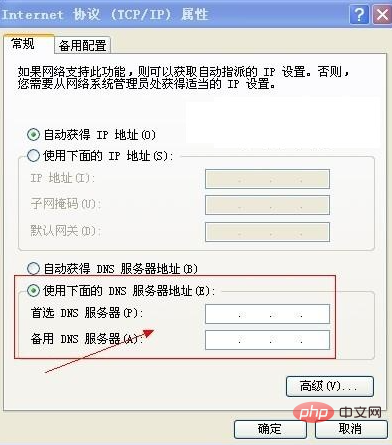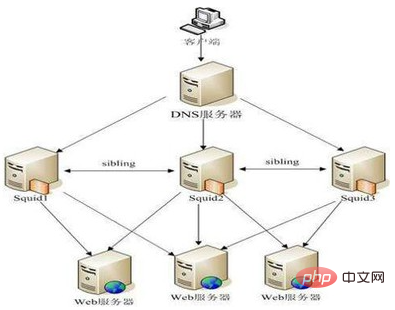Home >Common Problem >What is dns server
What is dns server
- 百草Original
- 2023-07-05 13:27:2917481browse
Dns server refers to the domain name server, which is a server that converts domain names and corresponding IP addresses. It is a method of managing names. This method is divided into different groups to be responsible for each subsystem. Each layer in the system is called a domain, and each domain is separated by a dot. DNS is actually a host equipped with a domain name system. It is a hierarchical structure database that can achieve name resolution.

The operating system for this tutorial: Windows 10 system, DELL G3 computer.
DNS server refers to the domain name server. DNS is a server that converts domain names and corresponding IP addresses. It is a method of managing names. This method is to divide different groups into responsible for the names of each subsystem. Each layer in the system is called a domain, and each domain is separated by a dot. DNS is actually a host equipped with a domain name system. It is a hierarchically structured database capable of name resolution.

# DNS stores a table of domain names and corresponding IP addresses to resolve the domain name of the message. A domain name is the name of a computer or computer group on the Internet. It is used to identify the electronic location (sometimes also the geographical location) of the computer during data transmission. A domain name is a string of dot-separated names, usually including the name of an organization, and always includes a two- or three-letter suffix to indicate the type of organization or the country in which the domain is located.

The reason why domain name resolution does not take a long time is because Internet access providers, such as Beijing Telecom, Henan Telecom, etc., in order to speed up the speed for users to open web pages, usually DNS records for many domain names are cached in their DNS servers. In this way, when a user of this access provider wants to open a certain web page, the access provider's server does not need to query the domain name database, but directly uses the DNS records in its cache, thus speeding up the user's access to the website.
The main function of a DNS server is to convert human-recognizable domain names into computer-recognizable IP addresses. When a user enters a domain name in the browser, the browser first sends a request to the local DNS server. The local DNS server is responsible for caching the correspondence between resolved domain names and IP addresses to improve query speed.
If the local DNS server does not cache the requested domain name and IP address correspondence, it will send requests to other DNS servers to obtain the required information. These DNS servers will cooperate with each other, continuously forward query requests, and finally find the corresponding IP address. Once the local DNS server obtains the IP address corresponding to the target domain name, it returns the result to the user's browser, allowing it to establish a connection to the device or service.
In addition to domain name resolution, the DNS server is also responsible for many other tasks. For example, it can support load balancing, which distributes traffic to different servers to improve performance and reliability. It can also implement reverse resolution, that is, find the corresponding domain name based on a known IP address.
DNS servers also have a hierarchical structure. The root server is the top-level server responsible for managing the root domain name of the entire domain name system. Below are the top-level domain name servers, such as .com, .org, and .net. Each top-level domain name server manages information related to its corresponding top-level domain name. Next are the second-level domain name servers and third-level domain name servers, etc., until reaching the lowest level of servers, which are responsible for managing the specific correspondence between domain names and IP addresses.
In general, the DNS server is a vital part of the Internet, which allows people to easily access and communicate through domain names. Its distributed architecture and hierarchical structure make domain name resolution efficient, fast and reliable.
The above is the detailed content of What is dns server. For more information, please follow other related articles on the PHP Chinese website!

